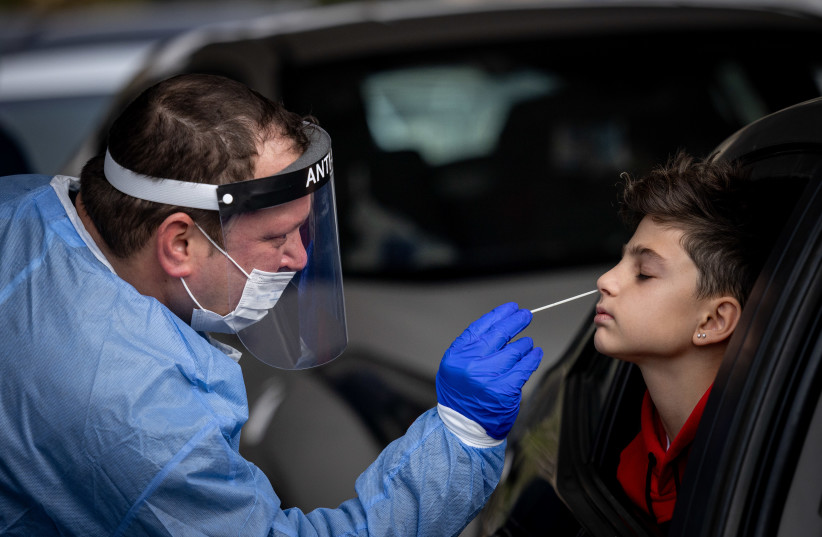Israel’s policies regarding corona tests are set to change beginning on Friday, though navigating the new requirements and understanding when and for whom different kinds of tests are needed might feel confusing and even annoying.
However, make no mistake, the rules represent a dramatic shift in how the country is managing the pandemic. The government is asking everyone to show the highest level of responsibility, but also to give up on some of the core principles it has relied on so far, especially on knowing how many corona cases there really are in Israel.
A little background might better help explain the authorities’ decision.
First, as government and health officials have repeatedly stressed, the Omicron wave (or tsunami) is completely different from the corona we have known so far. If at the peak of previous waves the country had around 10,000 or 11,000 new daily cases, now we are at 16,000, which will become 50,000 by next week.
The situation has created unprecedented overcrowding at Israel’s testing stations.

So far, the country relied on two types of tests.
- PCRs – which are highly accurate but need to be processed by a laboratory – were mainly used for symptomatic individuals and individuals exposed to a verified case.
- Less accurate antigen tests – also known as rapid tests because they do not need lab work and the results are offered within a few minutes – were mainly used for children and other unvaccinated individuals to grant them a temporary Green Pass.
In addition, at-home antigen tests were employed when a high number of Israelis needed to be tested in a short period of time, such as children ahead of returning to school after a break, and were recommended for those who wished to check themselves for any other reason.
Now PCRs are reserved for those age 60 and older, or those with underlying conditions. Everyone else, if they are exposed to the virus or have symptoms, and as long as they are vaccinated, can just use an at-home antigen test (or get one at a testing station, which is also the requirement for those who are not inoculated).
Who will check that such people do get tested if they present symptoms or are exposed?
The answer is obvious. Nobody will. Nor will anybody make sure that if they do take a test at home and it is positive, they also get the official one, register as infected, and enter quarantine.
For a society not known for self-discipline or keeping rules, this is a huge gamble. Since the beginning of the pandemic, Israelis have constantly defied regulations, from not wearing masks to avoiding quarantine when returning from abroad.
Now the authorities are counting on – or at least asking – citizens to test themselves, report if they are sick, and enter quarantine to avoid infecting other people.
Unfortunately, the government and health officials know that this is likely not going to happen in many if not the majority of cases.
However – and this is the second element to keep in mind – they did not have any choice.
As Ilana Gens, head of the Health Ministry’s Public Health Services headquarters, told the Knesset Law and Constitution Committee earlier this week, Israeli laboratories’ capacity to process PCRs stands at around 200,000 per day, and that cannot be expanded fast enough to fight Omicron.
With tens of thousands of people infected daily, hundreds of thousands more will need testing.
For at-risk groups, a fast diagnosis allows the health system to offer them the antiviral pills that can prevent them from developing serious symptoms, and therefore hospitalization and death. That is why the efforts – and PCRs – need to be reserved for them.
This also means that in the upcoming days, the number of daily cases officially registered will become less and less accurate. In other words, official statistics will likely never show the 50,000 new daily virus carriers that are currently predicted, and if they do, it will be because the real number is much higher.
The important parameter to follow will be the number of serious patients, which as of now remains limited but is also quickly increasing.
This will represent a dramatic shift in the way the public perceives the pandemic. We know that serious morbidity is delayed compared to general morbidity. Therefore, it will take longer to assess the true price of the Omicron wave.
In the next few weeks, millions of Israelis will likely be infected. It is hoped that the vast majority of them will not suffer any major consequences to their long-term health.
It is up to every individual to do as much as possible so that these millions do not include the most vulnerable, the elderly, and those who are too young to get inoculated.
